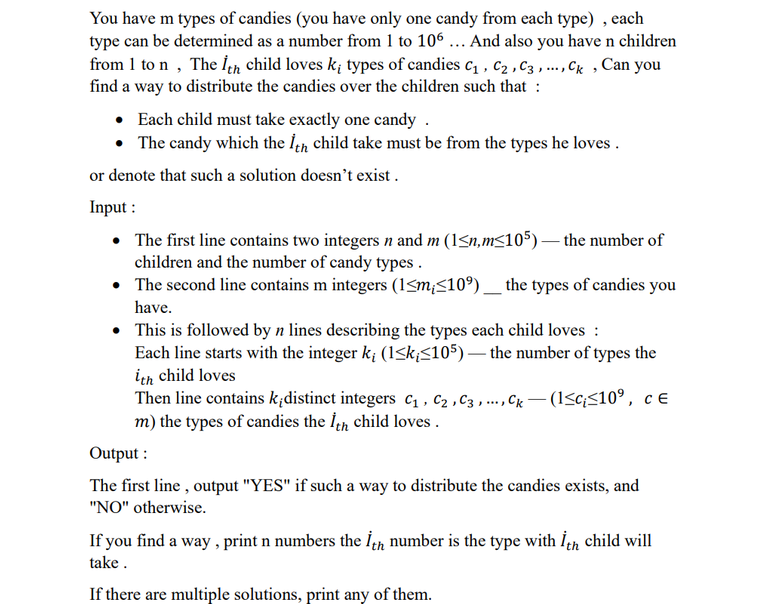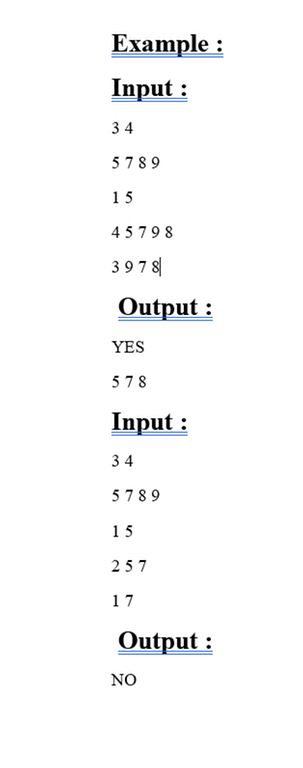- I met this problem as a subproblem many times and tried to find a solution for it but failed ,So I make an elegent statement for the problem asking for someone's help :


→ Pay attention
→ Top rated
| # | User | Rating |
|---|---|---|
| 1 | tourist | 3856 |
| 2 | jiangly | 3747 |
| 3 | orzdevinwang | 3706 |
| 4 | jqdai0815 | 3682 |
| 5 | ksun48 | 3591 |
| 6 | gamegame | 3477 |
| 7 | Benq | 3468 |
| 8 | Radewoosh | 3462 |
| 9 | ecnerwala | 3451 |
| 10 | heuristica | 3431 |
→ Top contributors
| # | User | Contrib. |
|---|---|---|
| 1 | cry | 167 |
| 2 | -is-this-fft- | 162 |
| 3 | Dominater069 | 160 |
| 4 | Um_nik | 158 |
| 5 | atcoder_official | 157 |
| 6 | Qingyu | 156 |
| 7 | adamant | 151 |
| 7 | djm03178 | 151 |
| 7 | luogu_official | 151 |
| 10 | awoo | 146 |
→ Find user
→ Recent actions
↑
↓
Codeforces (c) Copyright 2010-2025 Mike Mirzayanov
The only programming contests Web 2.0 platform
Server time: Feb/24/2025 02:59:23 (f1).
Desktop version, switch to mobile version.
Supported by
User lists


| Name |
|---|










Could you give a publicly available link instead of screenshots? Or at least tell where the problem is from? This looks fishy.
Edited , Bro
The reason why I asked for a link ia to prevent cheating, but considering the statement you sent doesn't even have a bound on the sum of $$$k_i$$$ i will assume youre not.
This is the maximum bipartite matching problem, you can read about it here https://cp-algorithms.com/graph/kuhn_maximum_bipartite_matching.html
However, this is an advanced topic and you should probably worry about other things more. If you're encountering this problem a lot youre probably making the wrong reductions.
I understood the topic , but can't it be solved in time complexity less than O(n*m) time , if we don't need the number of matchings, just need whether or not the solution exists
Kuhn is faster than $$$O(nm)$$$ in practice with the heuristics they talk about there. There is also a $$$O(n\sqrt{n})$$$ that as far as i know is hard to distinguish from kuhn. Asking if there is a perfect matching doesn't help in this problem.
Also, if you are thinking on how to solve a specific problem, send that specific problem instead. A lot of times when beginners ask for help they make wrong reductions and leave out important information, that's probably what is happening here.